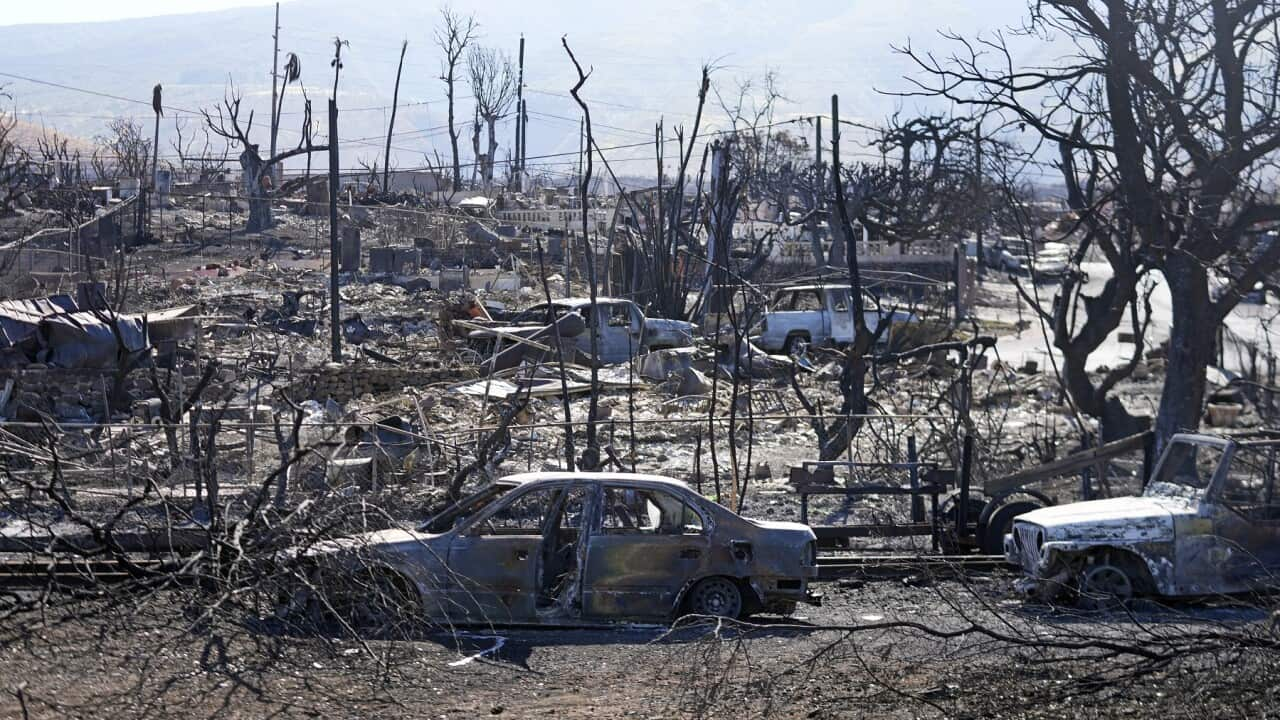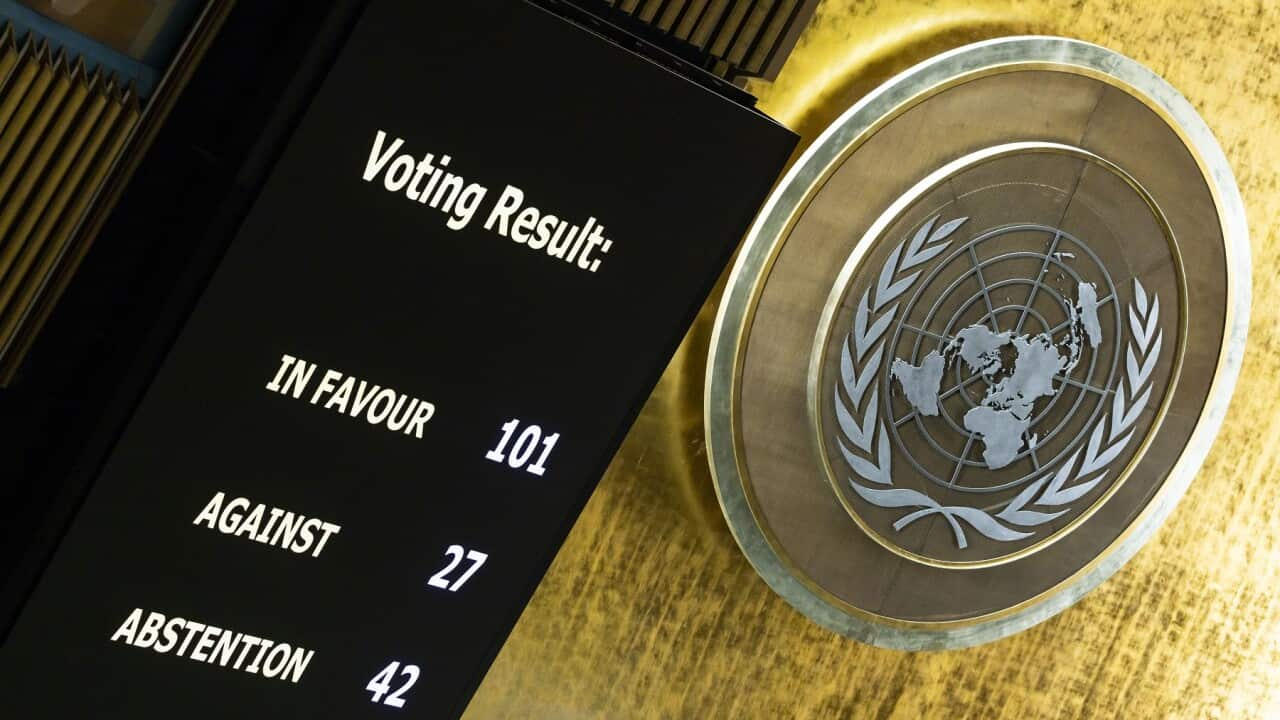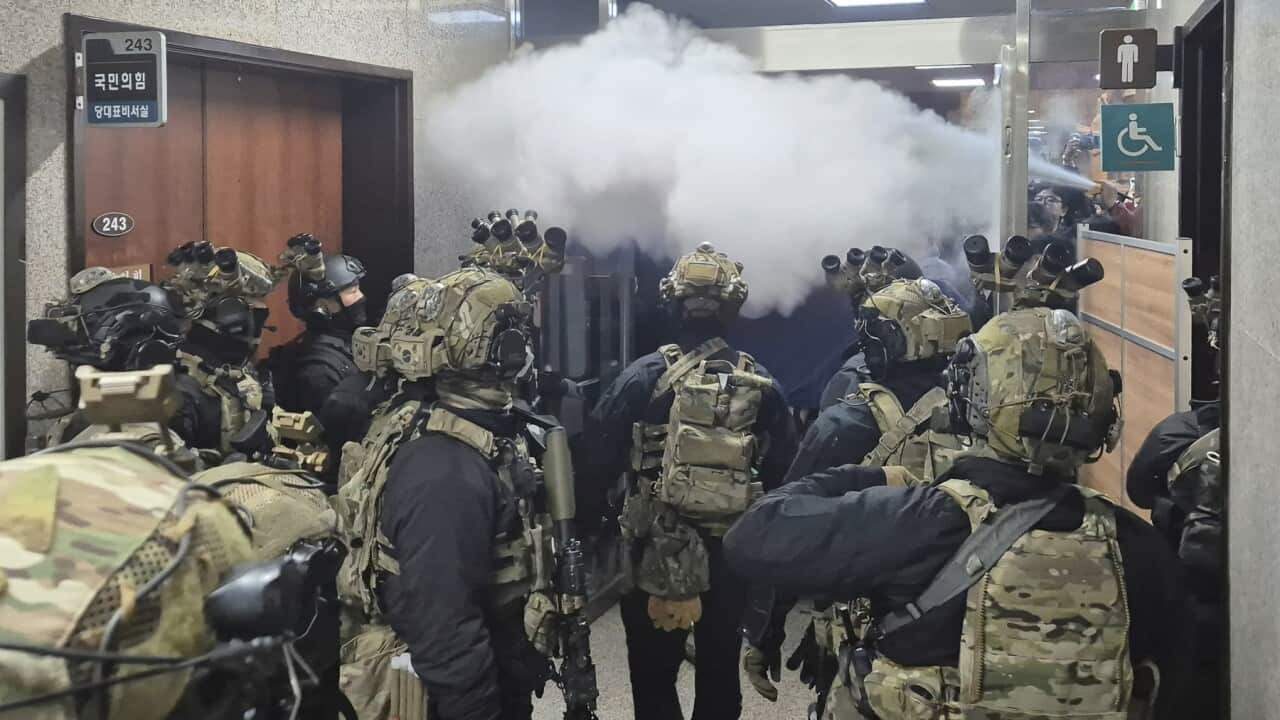TRANSCRIPT
Once a vibrant tourist destination and the historical capital of the Kingdom of Hawaii, known for its luaus and fire dancers, Lahaina is now grappling with the aftermath of the devastating wildfire that has left its mark on both its landscape and its people.
The Lahaina fire has claimed the lives of at least 93 people across Maui Island, leaving residents grieving yet determined to rebuild.
More than 2,200 structures have been damaged or destroyed, and nearly nine square kilometres of land has been scorched, according to Hawaii Governor Josh Green.
"If you look at what's been seen now in West Maui 2,200 structures have been destroyed or damaged, 86% are residential. In Kula 544 structures have been exposed and 96% were residential. The losses approach $6 billion in estimate."
This resident is pointing the finger at authorities claiming they downplayed the danger the community faced from already raging wildfires as Hurricane Dora approached, fanning the flames towards Lahaina.
“There was no warning. I was paying attention on my phone to the news. Okay. Oh, it's so many hundreds of miles down. We're going to have some strong winds. It's going to play havoc with our trade winds. Nothing to worry about. Okay. The next day when the storm passed by, okay, all of a sudden my apartment went black. Oh is it going to rain? When we open the door it was orange from the fire."
Candy Olafson also says there was no warning.
"People are found in houses in a huddle holding each other because the fire surrounded their homes before they could even get out, there was nowhere to go. And these homes that are very old and they are made of wood. Those went up like a matchstick. Nobody had warning."
It's not only the deaths of members of the community weighing on residents' minds, or the material devastation.
It's also the road closures and communication breakdowns that are compounding the challenges faced by the community.
Lahaina resident, Kanoe Haole-Keahi, is frustrated, and heartbroken after being turned away from her home due to road closures.
"It is my second day trying to get home. Now to be turned around twice because stupid people in Lahaina are not following directions. Now I got to suffer. My family got to suffer. Nobody is communicating with the people that are waiting to get into Lahaina. I know they're busy, and they have things to do, but somebody's going to come out and talk to us, too, not to be turned around at the last minute saying, oh, the road is closed again when we're so close to going home. I lost everything, and I can't even get back home to help my family out."
This is Daniel Rice. He's frustrated with the authorities who he says are keeping the community from helping one another.
"This is nonsense. If you need more authority out there, mayor, governor, anybody, get more authority out there. Keep the damn roads open so we can get through to our families and have the freedom to get back to our places of residence or close by so we can do what we have to do as good people."
Amidst the frustration, there are also rumours of looting and violence, casting a shadow over the recovery process.
Once-vibrant, Lahaina, is now a refuge as hundreds of displaced residents seek shelter at the War Memorial Gymnasium.
Families, like that of Ciale Fonohema, have erected tents outside the overcrowded shelter, a testament to the magnitude of the disaster.
"We're all staying inside this tent right over here. We just came out with this family that I think you interviewed earlier. We all shuttled together in different cars. Some of us didn't have gas, so we all followed each other. Some of us lost our cars because we didn't have gas and hopped into the car with each other. I'm so blessed that me and my family are together, and we weren't like a lot of families that were stuck and had to swim. I couldn't imagine my son swimming and my grandma swimming in the water."
Many locals came forward to lend a helping hand by bringing in essential supplies such as water, toiletries, food, clothing, and lighting equipment.
Employee at Kai Kanani Sailing Caitlin McNight says she and others are traumatised.
“Seeing people that I know and that I love. Their homes are gone, you know. It's traumatizing you know, And oh, I'm trying to not cry this whole time and trying to be strong for everybody, you know, but. I'm just I'm so, so hurt by everything that's happened."
On Saturday morning, a queue of cars waited at the police checkpoint to show their documents to prove they were local residents hoping to be allowed to see if their home survived.
Some were let through the checkpoint.
What awaited them on arrival were scenes of utter devastation, even worse than they expected.
Damaged cars were everywhere, and much of the wreckage was still smouldering.
Emergency managers in Maui are still assessing the scope of the damage in the center of Lahaina and searching for places to house people displaced from their homes.
Governor Josh Green again:
"This is the largest natural disaster we've ever experienced. It's going to also be a natural disaster that's going to take an incredible amount of time to recover from. So in the next few days, as we characterize how many people we've lost and how many people are coming into our community, please understand that we come at this like an Ohana because it's going to be, in the short term, heartbreaking. In the long term, people are going to need mental healthcare services in the very long term will rebuild together."
He says the government is working as quickly as possible to secure housing for the thousands affected at no cost to them.
“So we've put together a temporary housing task force, which will work with our federal partners. We've already secured 1000 rooms. 500 rooms will go to families that have been displaced because of the terrible fire, the other 500 rooms to go to support initially. Then coming after that in the days that follow will have long term rentals. Those are the short term rentals term, long term now, All of that is going to be covered. It's going to be covered by the state. Some of it's going to be given charitably. And then finally, FEMA will cover a great deal of the cost."
Tourists are being asked to not visit Maui in order to leave hotel rooms vacant for those displaced by the inferno.
On Sunday, President Joe Biden said his team was discussing the wildfire damage and that a survey of the damage could come in the coming days.













